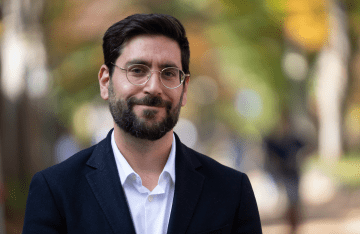Inauguration Day: History, Meaning, and Significance
Lecturer David Eisenhower, grandson of the former president, gives the long view of the significance of Inauguration Day.
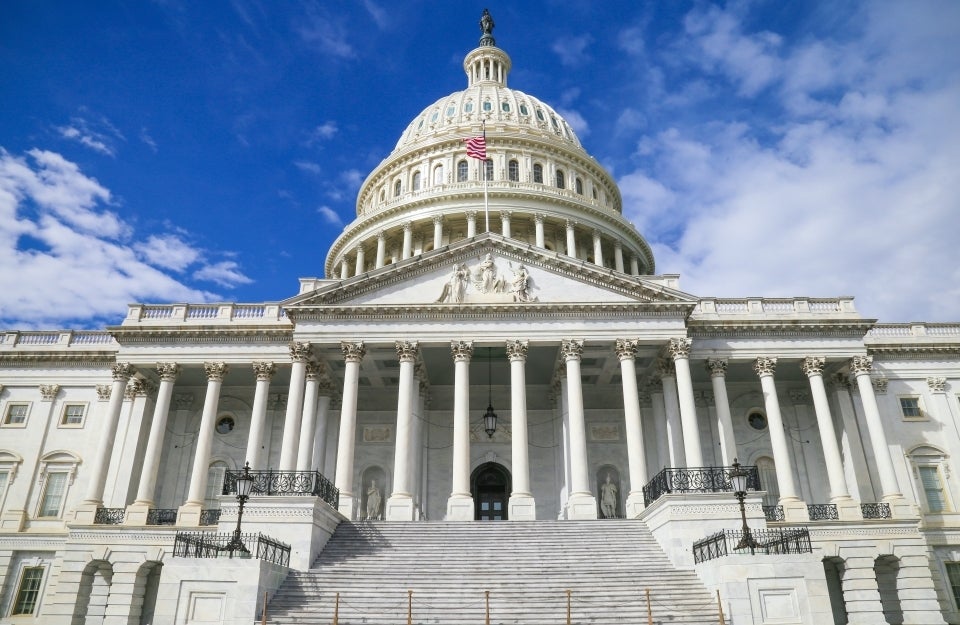
Photo Credit: Louis Velazquez / Unsplash
From the chaotic election cycle to the events of the past few weeks, the 2020 presidential election has felt anything but traditional. Penn Today asked David Eisenhower, director of the Institute for Public Service at the Annenberg School for Communication, to give the long view of the significance of Inauguration Day. It’s something Eisenhower is uniquely positioned to do. Not only does he teach a course at Annenberg about the U.S. presidency, but he’s attended three inaugurations himself: his grandfather Dwight D. Eisenhower’s in 1957; John F. Kennedy’s in 1961; and his father-in-law Richard Nixon’s in 1973.
“The good thing about an inauguration is it’s an opportunity to start fresh,” Eisenhower says. “Let’s hope the American people will take that opportunity.”
Here are his observations and thoughts on things to keep in mind about this historic occasion.
Families, Music, and Speeches
These are the three things that stand out in my mind, as somebody who’s participated in several inaugurations.
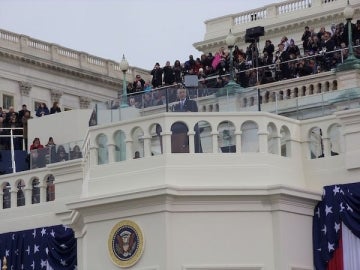
We won’t have it this time, but seeing the outgoing family has always made a big impression on me. The Kennedy inauguration of 1961 was one of the great highlights of the 20th century, but for me it was a very somber day. It was the day my grandfather left office — and when my Secret Service detail disbanded. For outgoing presidents and their families this is a very bittersweet day, and I always feel great compassion for them.
Another thing that I notice, particularly in the ceremony, is the music. My favorite is from President Barack Obama’s second inauguration — the rendition of the “Battle Hymn of the Republic” by the Brooklyn Tabernacle Choir. It has to be one of the musical highlights of any inauguration I’ve ever seen.
The third thing that stands out is the speech. Something comes over people under those circumstances if you’re nearby during the inaugural speech. It is unforgettable; it’s the supreme moment, and one definitely gets a sense of that in person. Watching the transfiguration of a new president or reelected president is something memorable.
Power of the Speech
One of the things I say to classes at Annenberg, is that speech is an art, not a science. What happens in inaugural speeches is that they tend to come together at the last minute; that’s something we’ve determined through the scholarship we’ve done. In fact, the Kennedy’s 1961 and Franklin Roosevelt’s 1933 inauguration speeches both came together at the last minute, and I mean the last 36 hours. They tend to come together as the deadline approaches, and they have a sort of eerie timelessness about them.
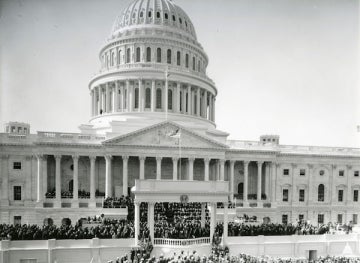
The speech has to do several things. First, it stands as an appraisal of the new president’s interpretation of that political moment, encompassing the meaning of the recent election and where that election points the nation.
Second, a president faces a choice, and that is whether to lead or to unite. Leadership can be divisive in a way, particularly if you’re changing course. Inaugurations have to strike a balance between those two things. We’ll all be tuning in and watching very carefully to see how Biden does that because this is obviously a moment of division in America.
Sometimes people will not hear the magical, unifying formulas that they expect to. But there is a philosophy that what unifies America in the final analysis is success, and successful policies. If you have a very policy-laden speech, the odds are that the president sees issues as being far more prominent than the immediate task of unifying an audience.
Presidents are elected because they bring something unique to address our national problems, and that is why I accord them a lot of deference. People will be listening very carefully to how Biden prioritizes the problems facing the country.
Model Inaugurations
There are presidential inaugurals that stand as sort of models. Thomas Jefferson's first inaugural is the classic appeal for unity, and it really does not get beyond that. It sets the standard for inaugurals.
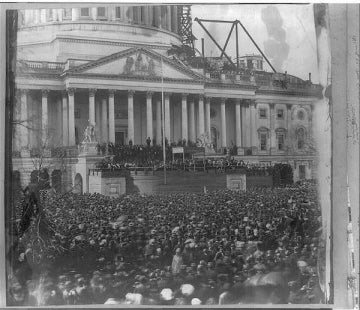
A speech that partitions the audience in anticipation of a great struggle would be Abraham Lincoln’s first. That speech acknowledges divisions and promises eventual reconciliation, with the idea that the resolution of the slavery issue is what will unify America ultimately. He didn’t try to seek some sort of lowest common denominator between the parties but says ultimately a policy decision will unite the nation.
Franklin Roosevelt’s was a sort of mix of the two. He’s very powerful in his criticism of the old order in his 1933 speech, but he’s not directing his criticism at very many people.
Kennedy’s team claimed they modeled his speech on the Jefferson speech, and it is a very stirring declaration of Americanism, but it’s also very definitely a leadership speech. It combines unifying America with a leadership theme in a very powerful way, which propelled Kennedy to years of astronomical approval ratings of the high 60s and low 70s.
Meaning, Hopes, and Impact
What we talk about in my class is the significance of the occasion, what the new president hopes to achieve by it and what an inauguration can mean. Inaugurations can mean huge things.
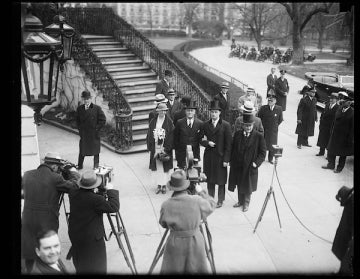
I really think that Franklin Roosevelt’s 1933 speech, in many ways, turned the national psychology around. That is a momentous speech — the “all we have to fear is fear itself” speech — but the impact of that speech on American confidence was so profound that, literally, he gives a fireside chat about eight weeks later telling everybody to calm down, the problems aren’t solved yet. It accomplished a terrific start for that administration.
Another one that comes to mind of course is Kennedy’s speech, when America was at the pinnacle, in many ways. The impact of that inauguration was also profound. It certainly inspired a generation of people to go into public service, and I think it was intended to do exactly that, and so it succeeded.
I think a lot can come of a successful inauguration. That is the task Biden faces, and I think we all wish him the best.


